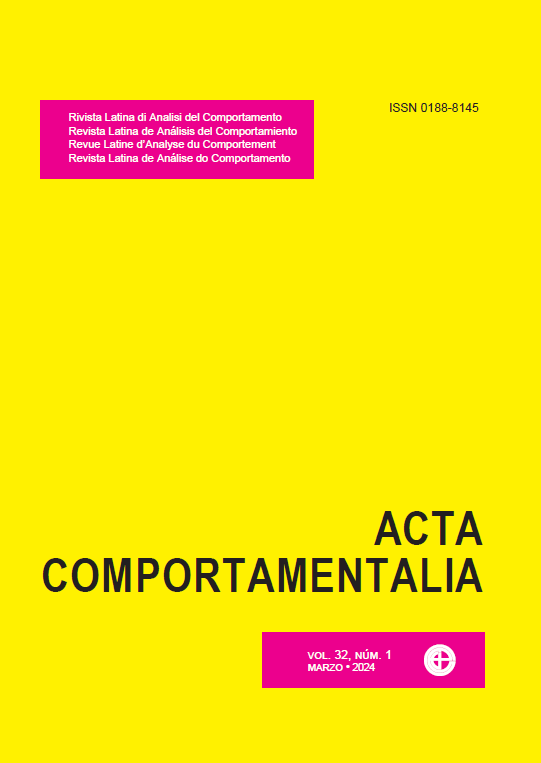A Construção Política do “Eu” no Comportamentalismo Radical: Opressão, Submissão e Subversão
Contenido principal del artículo
Resumen
De uma perspectiva comportamentalista radical, o eu é um repertório verbal complexo, que, como tal, tem uma gênese social. O reconhecimento da origem social do “eu” abre caminho para uma análise política, incluindo uma discussão do papel das relações de poder na constituição do eu. Entretanto, uma concepção radicalmente social do “eu”, como a proposta pelo comportamentalismo, suscita um problema político: se o eu é integralmente produto do ambiente social, de onde viria uma eventual “vontade” de romper com esse sistema? Parece que para reconhecer a possibilidade de ação política transformadora seria preciso preservar uma noção descontextualizada de “eu”. Considerando essa dificuldade, o objetivo deste artigo é propor uma interpretação política da constituição do “eu” no âmbito do comportamentalismo radical, mantendo no horizonte a possibilidade de uma ação política transformadora. Para tanto, destacamos como “eus” oprimidos são tornados submissos, mas também como de certas contingências podem emergir “eus” subversivos, que se opõem a um sistema social opressivo. Esse “eu” subversivo é caracterizado por um repertório de autoconhecimento mais amplo, que inclui a discriminação do papel das relações de poder e do controle promovido por instituições. Concluímos, com isso, que um “eu” socialmente constituído pode ser politicamente ativo.
Detalles del artículo
Citas en Dimensions Service

<a rel="license" href="http://creativecommons.org/licenses/by-nc-sa/4.0/"><img alt="Licencia de Creative Commons" style="border-width:0" src="https://i.creativecommons.org/l/by-nc-sa/4.0/88x31.png" /></a><br />Este obra está bajo una <a rel="license" href="http://creativecommons.org/licenses/by-nc-sa/4.0/">licencia de Creative Commons Reconocimiento-NoComercial-CompartirIgual 4.0 Internacional</a>.
